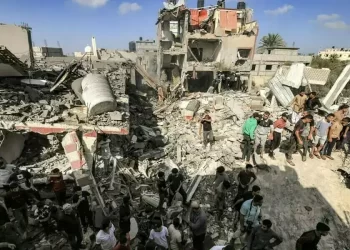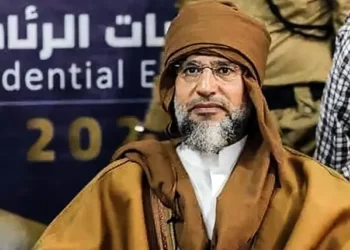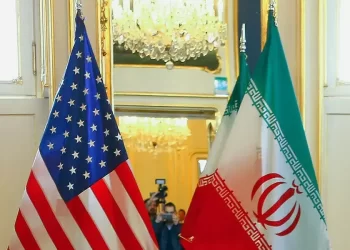PARIS (news agencies) — They are Nabil, Amine, François and more. But they will not be seen around the Paris Olympics, because France’s government barred them from getting anywhere close.
French authorities are making unprecedentedly broad use of discretionary powers under an anti-terror law to keep hundreds of people they deem to be potential security threats away from the biggest event modern France has ever organized.
Minorities — largely with backgrounds in former French colonies — are often among those forbidden from leaving their neighborhoods and required to report daily to police, their lawyers say. Some are alarmed by the sweeping use of what one described as “a terribly dangerous tool.”
Some of those now restricted in their movements, with orders that don’t require prior approval from judges, include a man who had mental health issues in the past but is now receiving treatment. There also is an apprentice bank worker and business student who believes he’s been targeted in part because he’s Muslim and his father was born in Morocco, plus a halal food delivery driver who risks losing his job because he is banned from straying far from home during the 2024 Olympics and ensuing Paralympics, their lawyers say.
French Interior Minister Gerald Darmanin says the restrictions aim to prevent “very dangerous” people from attacking the Games.
Darmanin says he’s applied them to more than 500 people this year as part of France’s security preparations for the Games and the Olympic torch relay that preceded the July 26 opening ceremony.
Those affected include Amine, the bank apprentice now forbidden from leaving his suburb south of Paris — except to report at 6:30 p.m. daily to a local police station. The France-born 21-year-old has no criminal record and has not been charged with any crime, he and his lawyer say.
Amine believes French intelligence services have mistaken him for someone else who posted decapitation images and threats against LGBTQ+ people on a video-sharing app. media is not identifying Amine by his full name because he fears potential employers and schools may reject him if they learn that police flagged him as a threat.
“I am not dangerous for France. I am not a terrorist. I am just a student who works to finance his studies,” Amine said in an interview at his studio apartment strewn with books and with family photos on the fridge.
Police visited twice in the last four months. They busted down a neighbor’s door the first time, seemingly because they had the wrong address, and then seized Amine’s phone and computer, which made boning up for his exams harder, he said. The second time, a month before the Games, was to notify him that he could no longer move around freely.
“If my name was Brian, if I was blond and blue-eyed, the situation would have been different. Except that it is not the case. I am a North African Muslim, and I’ve been targeted in France,” he said.
Fearing terror attacks, French authorities have massively ramped up security for the Games, flooding Paris streets with up to 45,000 police, plus soldiers armed with assault rifles, and tasking intelligence services to identify and neutralize potential threats in advance.
Interior Ministry notes seen by news agencies say security services foiled several alleged terror plots ahead of the Games, with Olympic soccer matches, an LGBTQ+ night club and France’s Jewish community among suspected targets. The ministry’s notes also say the Israel-Hamas war has heightened the terror risk in France, which has the largest Muslim and Jewish communities in Europe.
The anti-terror preventive effort also includes the liberal use of police powers to restrict the movements of people the ministry deems to be potential threats. The measures can only be challenged afterward in court, which some of those affected are now doing — a few successfully.
The powers were part of reinforced anti-terror legislation that sped through both houses of parliament in 2017, when France was still reeling from attacks by al-Qaida and Islamic State gunmen and suicide bombers in 2015.
The attacks killed 147 people — including in Paris neighborhoods now teeming with Olympic visitors and outside what is now the Olympic stadium, hosting track and field and rugby sevens.
The anti-terror law empowers France’s interior minister to restrict anyone’s movements when there are “serious reasons” to believe they’re a grave security threat and have terror ties or sympathies.
The power the interior minister is using to distance people from the Olympics by forcing them to stay close to home is called an “individual measure of administrative control and surveillance,” known by the French acronym, MICAS.
Darmanin told reporters last week that “just under 200” of the more than 500 Olympic-related MICAS cases he ordered this year are still in force during the Games.
They have been applied to people with “possible” extremist links who served jail time and others who weren’t sentenced but “represent a danger for us,” he said.









